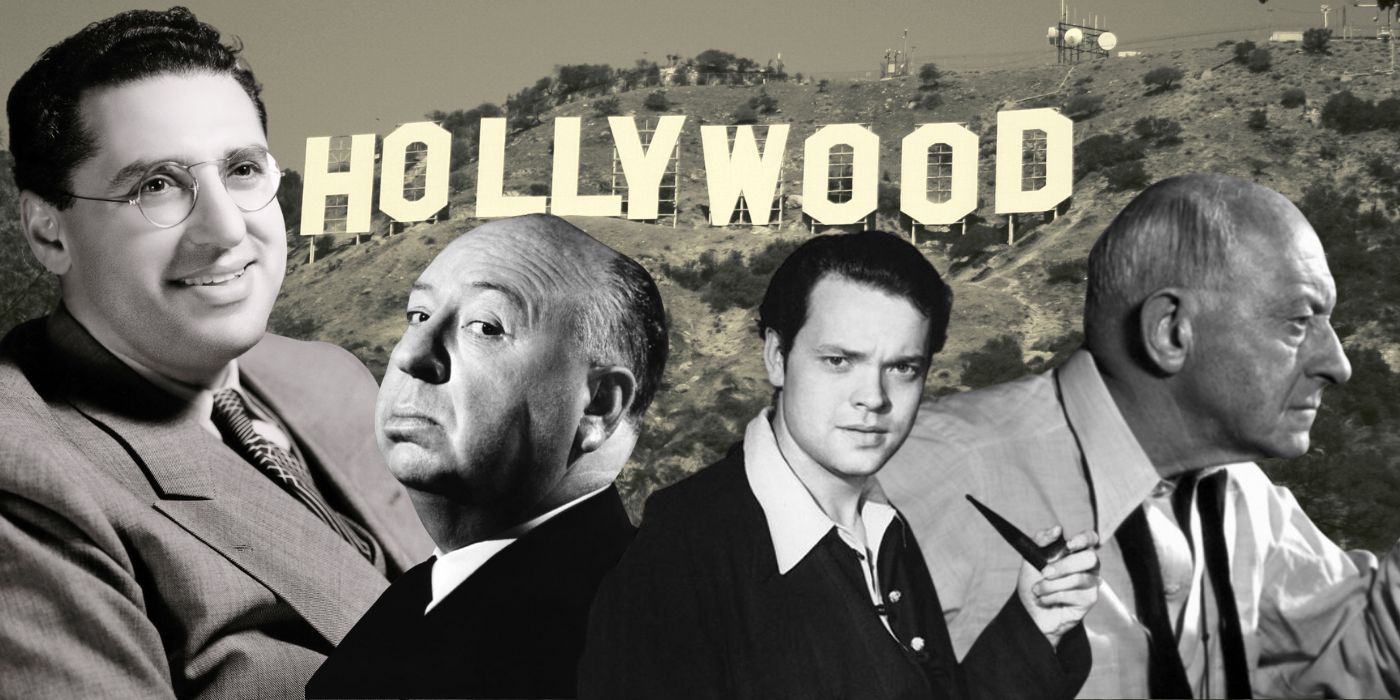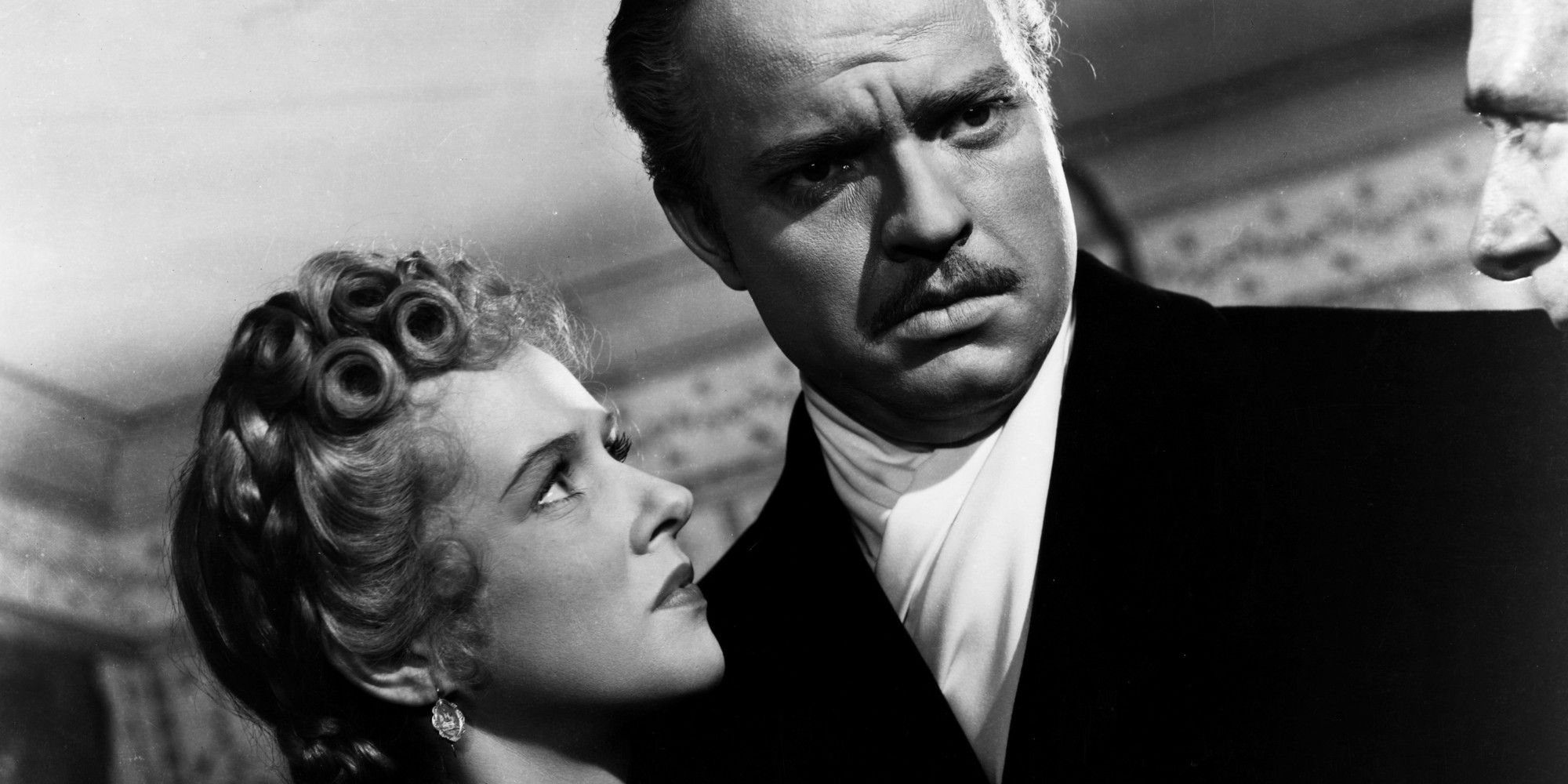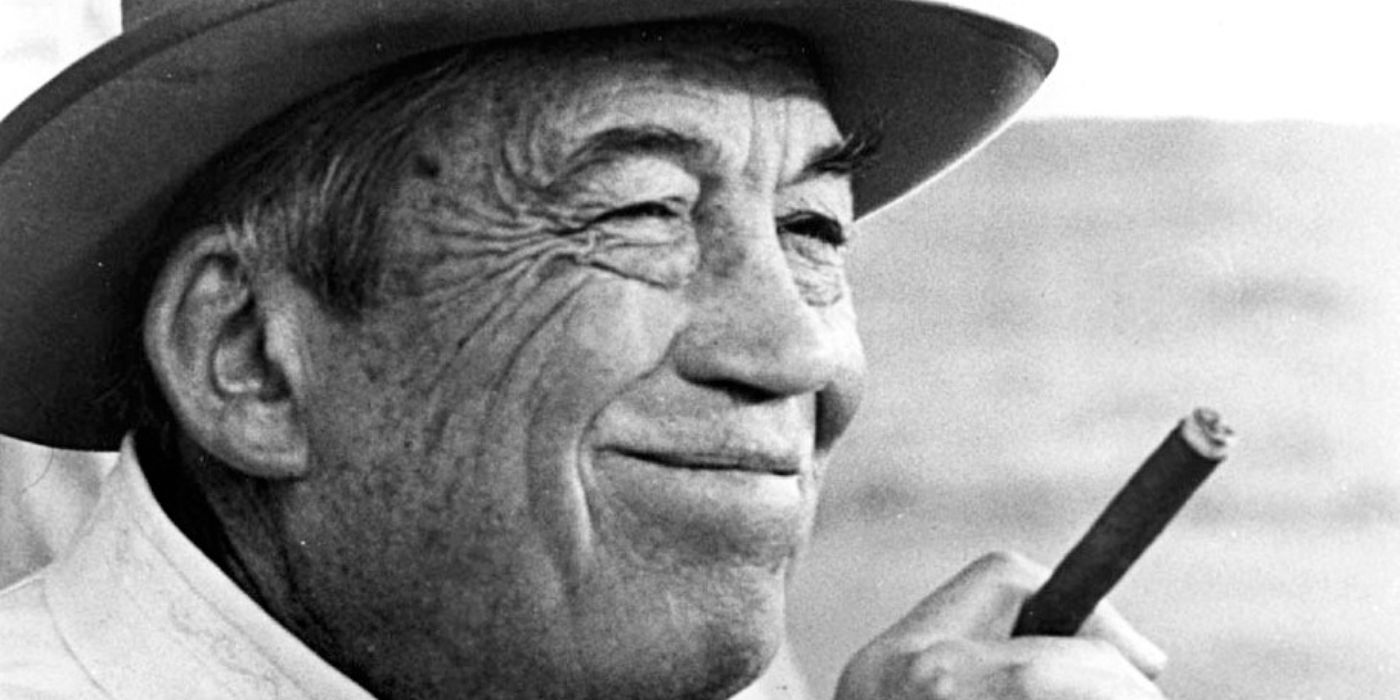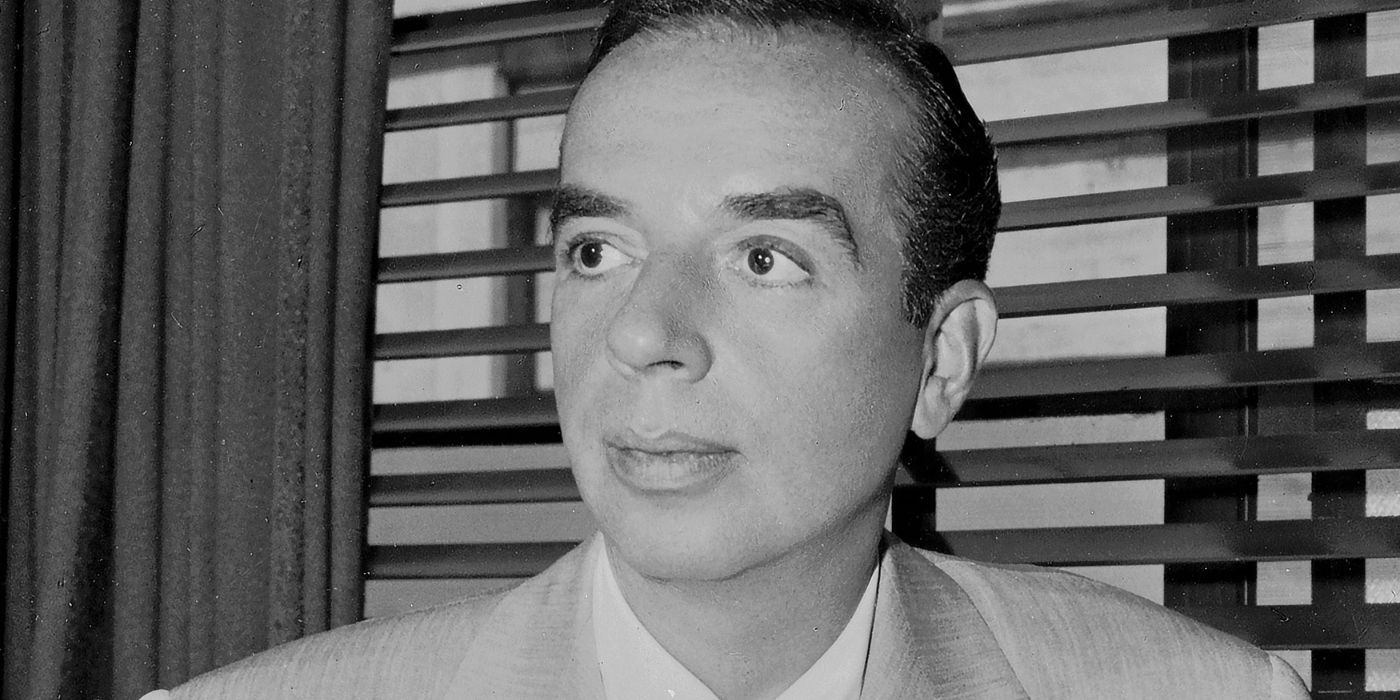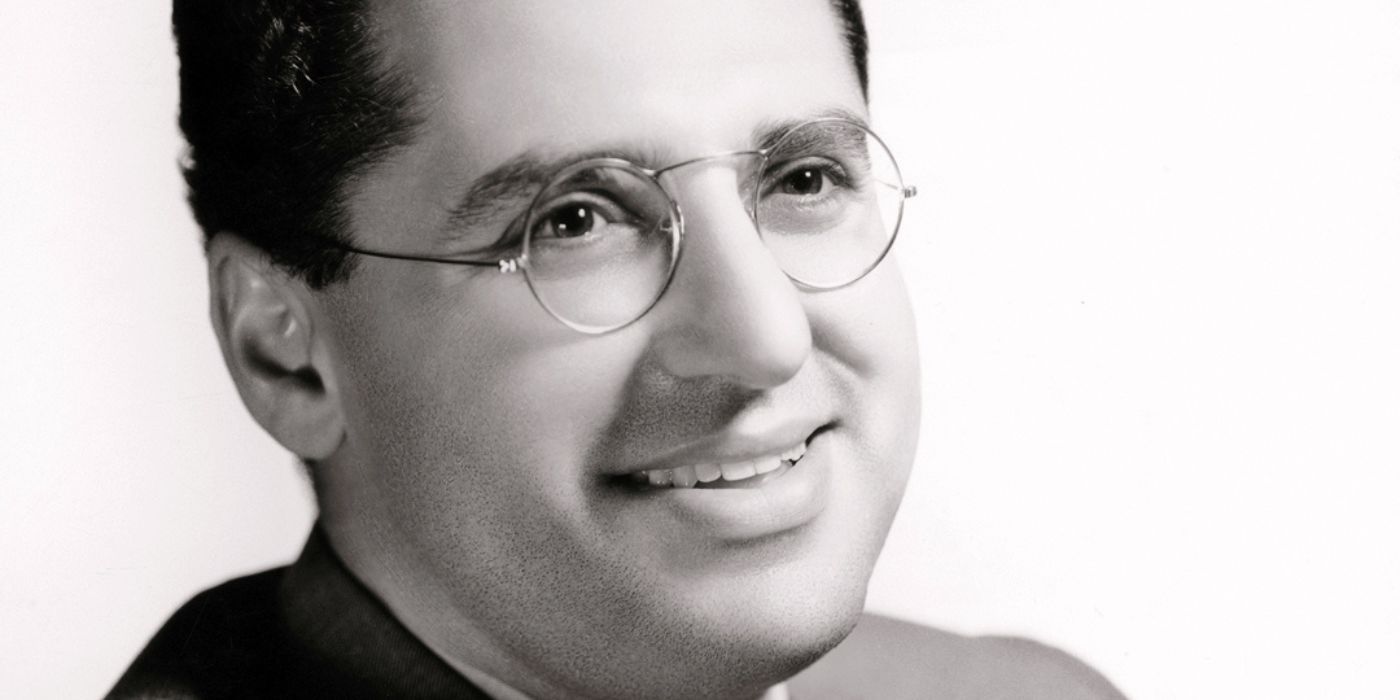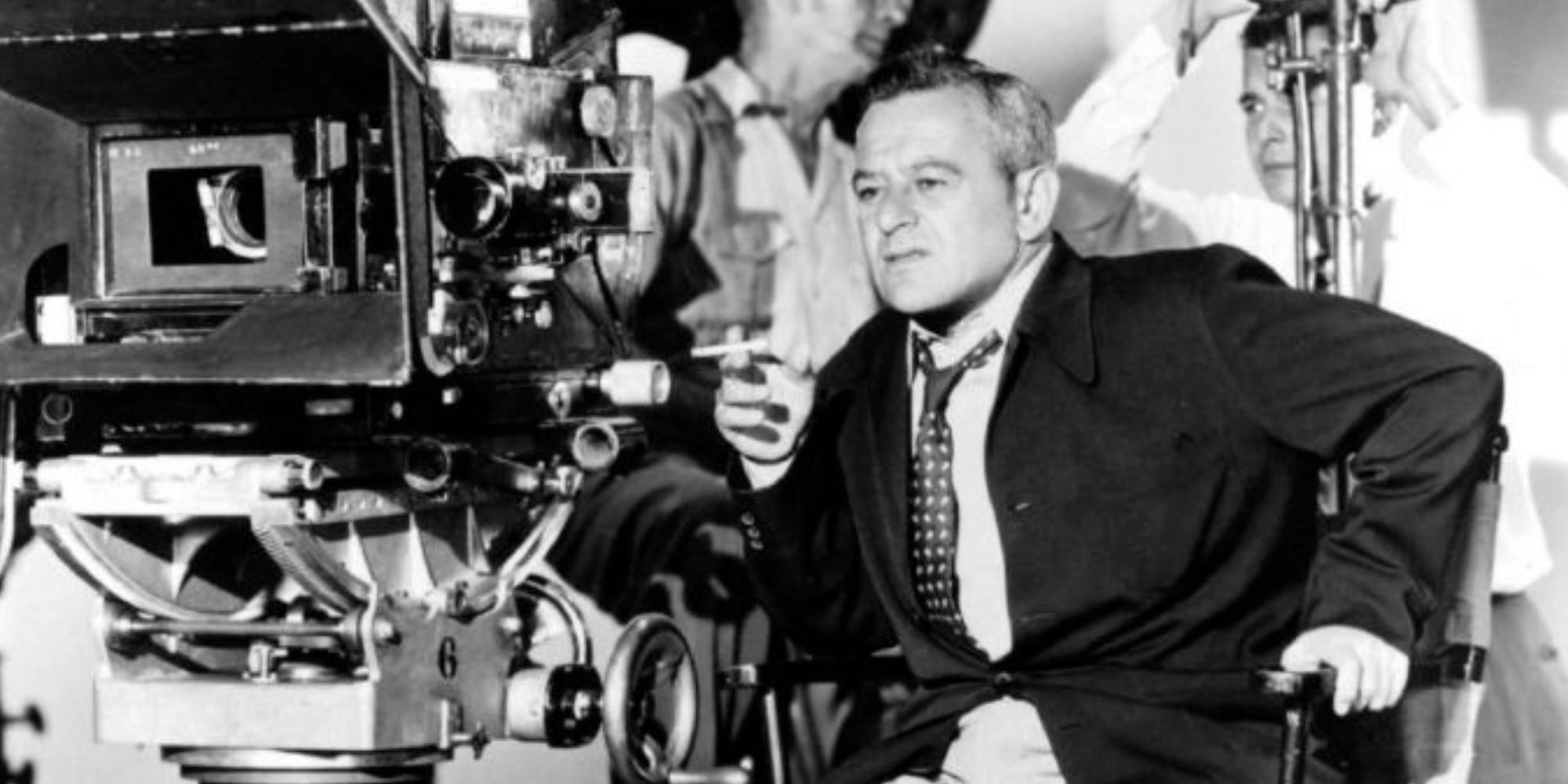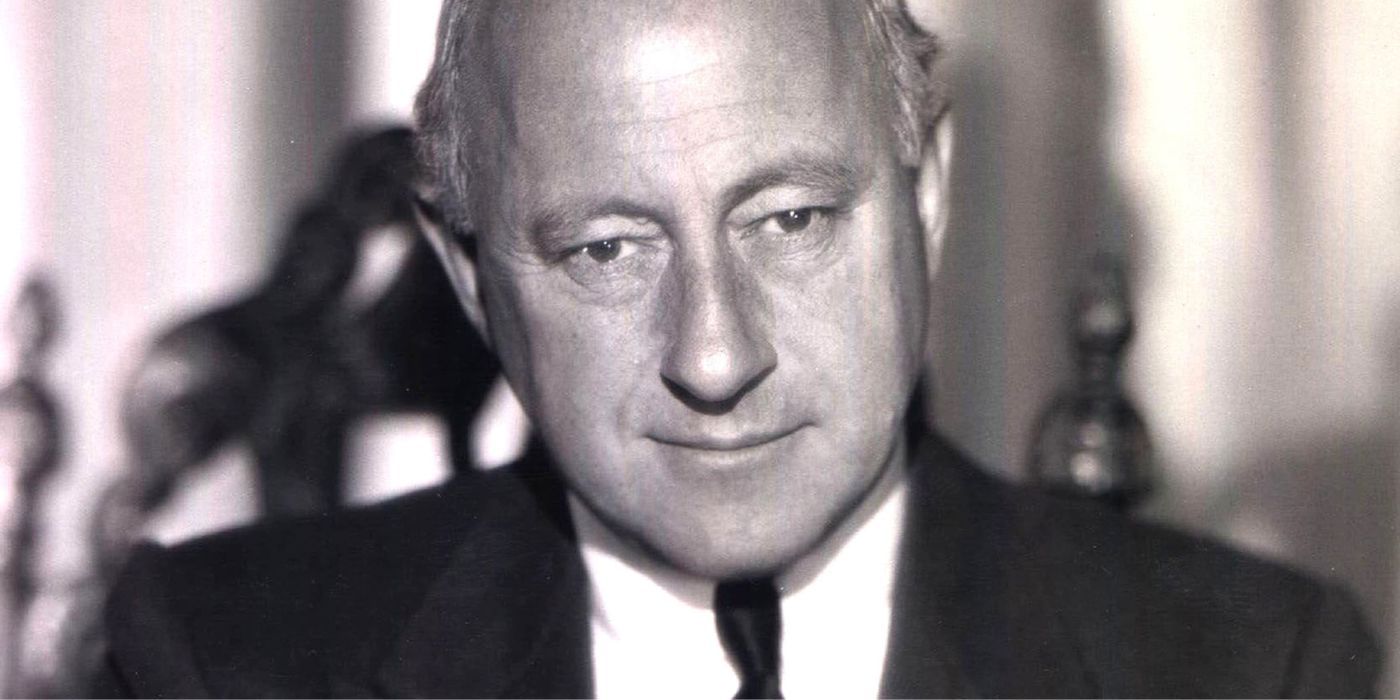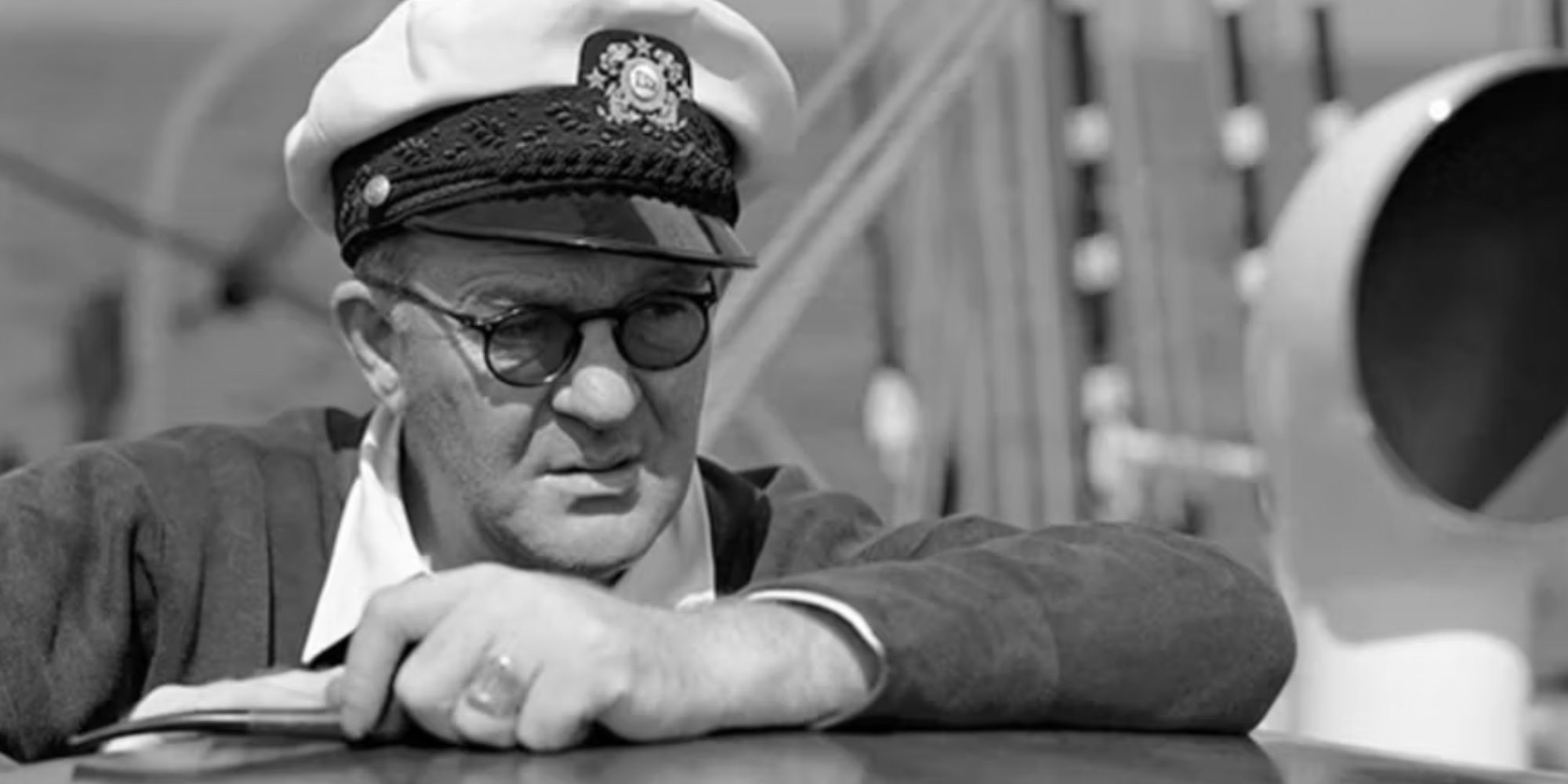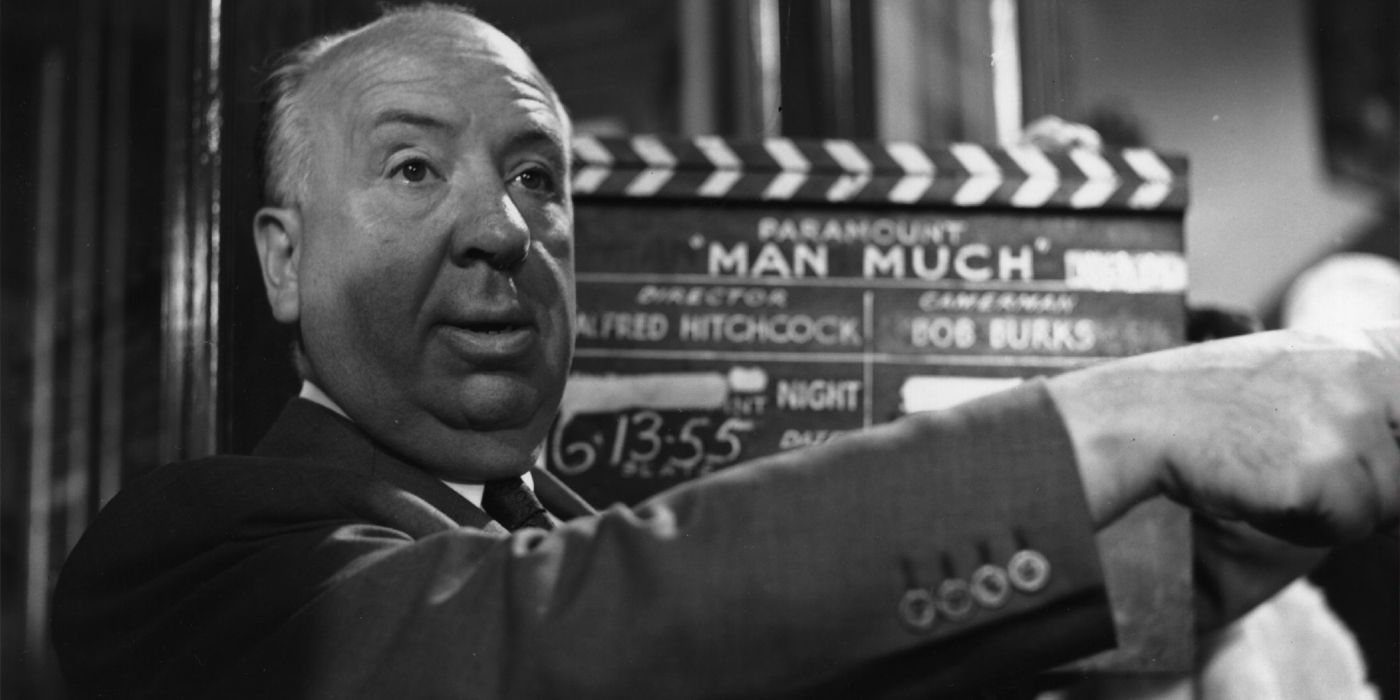The Golden Age of Hollywood lasted over two decades and produced some of the most iconic movies in the medium's history. A multitude of legendary actors and directors came together to create unforgettable stories in numerous genres, setting the bar for decades to come.
Among the most iconic directors were names like Wyler, Huston, Ford, and many others, whose enduring legacies have influenced countless generations of future filmmakers. These talented directors have become synonymous with the Golden Age of Hollywood, leaving behind comprehensive and timeless bodies of work that have stood the test of time.
10 Orson Welles
As iconic an actor, as he was a director, Orson Welles is among classic Hollywood's most influential figures. Welles rose to notoriety for his infamous radio narration of H. G. Wells's seminal novel The War of the Worlds, which led many to believe an alien invasion was truly happening.
Welles excelled in Hollywood; his directorial debut, Citizen Kane, is often considered the all-time best motion picture. His other celebrated films include The Magnificent Ambersons, The Lady from Shanghai, and Touch of Evil. Despite his prominent career, Welles never won a competitive Oscar, instead claiming an Honorary Award in 1970.
9 John Huston
John Huston rose to prominence as a writer. However, his 1941 directorial debut, The Maltese Falcon, starring Humphrey Boggart and Mary Astor, propelled him to stardom. Huston would win the Oscar for Best Director and Best Screenplay for his 1948 Western The Treasure of the Sierra Madre.
Huston received fifteen Oscar nominations in his forty-year career and directed timeless classics like Key Largo, The African Queen, and The Asphalt Jungle. Huston has the rare distinction of directing his father and daughter to Oscar wins. Walter Huston won Best Supporting Actor for The Treasure of the Sierra Madre, and Anjelica Huston won Best Supporting Actress for the Oscar-winning romantic comedy Prizzi's Honor.
8 Vincente Minnelli
An institution in the movie musical, Vincente Minnelli rose to prominence as a stage director before successfully transitioning to film. The revered filmmaker made his directorial debut with the groundbreaking 1943 musical Cabin in the Sky, one of the first films to feature an all-Black cast.
Minnelli helmed many timeless and rewatchable musicals, including 1944's Meet Me in St. Louis, 1945's Ziegfield Follies, 1951's An American in Paris, and 1958's Gigi. Minnelli's cinematic legacy is rich, especially considering his influence in the musical genre, which experienced its apex during Hollywood's Golden Age. Minnelli is also well-known for his marriage to Judy Garland, with whom he had a child, Liza Minnelli.
7 George Cukor
Director and producer George Cukor found a home in RKO Pictures under the guidance of legendary producer David O. Selznick. However, his career exploded after moving to MGM, where he made most of his most celebrated and iconic pictures throughout the 1940s.
Cukor mostly specialized in comedies and romances. Among his most famous pictures are The Philadelphia Story, Gaslight, Adam's Rib, Born Yesterday, A Star Is Born, and My Fair Lady, for which he won his only Oscar for Best Director. Cukor is among classic Hollywood's most commercially successful directors, with his films climbing to the top of the box office.
6 Frank Capra
Italian-born director Frank Capra was a heavily influential figure throughout the 1930s and 1940s. Rising from a humble beginning, Capra eventually became a leading figure in Hollywood, winning three Oscars for Best Director -- the second most of any director.
Capra's rise to fame began with his groundbreaking 1934 romantic comedy It Happened One Night, one of the few films to win the Big Five Oscars. Future success continued with films like Mr. Deeds Goes to Town, Mr. Smith Goes to Washington, and the Christmas classic It's a Wonderful Life. During World War II, Capra directed several propaganda films supporting the US Army.
5 William Wyler
Swiss-German-American director and producer William Wyler is behind some of cinema's most iconic pictures. Wyler is tied with Capra for the second-most Oscar wins for Best Director, prevailing three times for helming the films Mrs. Miniver, The Best Years of Our Life, and Ben-Hur.
Wyler directed multiple performers to Oscar wins -- including Bette Davis in Jezebel, Olivia de Havilland in The Heiress, Audrey Hepburn in Roman Holiday, and Barbra Streisand in Funny Girl. Wyler's other hits include the period romance Wuthering Heights and the Souther gothic drama The Little Foxes.
4 Cecil B. DeMille
Often considered one of cinema's founding fathers, Cecil B. DeMille began his career in silent films before successfully transitioning to talkies. DeMille directed some of the greatest hits of the silent era, including 1923's The Ten Commandments.
DeMille moved to talkies in 1929, directing his first sound film, the drama Dynamite. His career continued for the next two decades, with DeMille directing epic historical films, including 1934's Cleopatra, 1952's The Greatest Show on Earth, for which he won his only competitive Oscars, and 1956's The Ten Commandments, now considered a major landmark in cinematic history. DeMille might be cinema's first showman, crafting films that enthralled audiences if not necessarily critics.
3 Billy Wilder
Austrian-American filmmaker Billy Wilder is easily among the most recognizable directors from Hollywood's Golden Age. Rising to notoriety as a writer, Wilder co-wrote the 1939 box office hit Ninotchka, starring the formidable Greta Garbo.
Wilder's directorial career took off with his Oscar-nominated film noir Double Indemnity, now considered among the most important films in cinematic history. Wilder continued to attract critical and commercial success, helming masterpieces like The Lost Weekend, Sunset Boulevard, The Seven Year Itch, Some Like It Hot, and The Apartment. Wilder won six competitive Oscars throughout his career, including Best Director twice for his efforts in The Lost Weekend and The Apartment.
2 John Ford
John Ford is the most awarded individual in the Best Director category at the Oscars. Winning a record four trophies for Best Director, Ford left an enduring legacy of pictures that continue to influence directors and performers today.
Beginning his career during the silent era, Ford moved to talkies, eventually becoming one of his generation's seminal filmmakers. Among Ford's most celebrated films are The Grapes of Wrath, How Green Was My Valley -- the film that infamously won Best Picture over Citizen Kane and The Maltese Falcon --, Rio Grande, The Quiet Man, and The Searchers.
1 Alfred Hitchcock
It isn't an overstatement to call Alfred Hitchcock his generation's most important and defining director. Blending cerebral themes with commercial accessibility made his pictures commercial hits; even if they weren't always appreciated during his time, Hitchcock's films are now considered classics and among cinema's best and most enduring treasures.
Hitchcock's golden period came between the mid-1930s and the early 1960s. His most acclaimed efforts include Rebecca, Suspicion, Notorious, Rope, Dial M for Murder, Rear Window, Vertigo, North by Northwest, Psycho, and The Birds. Hitchcock's influence in the mystery and horror genres is unmeasurable, and his importance for cinema cannot be understated.

